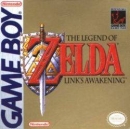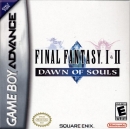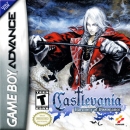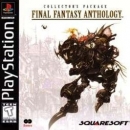Perhaps we could take the time to read Miyamoto's thoughts on IP, rather than just the one line the OP supplies and attempting a debate off of that.
"So this is actually a discussion that I think is tricky to balance, and certainly internally at Nintendo we have people on the teams who say, “Wouldn't this be better if we created a new IP around it?” But to me, the question of new IP really isn't whether or not [you have a new character]... I look at it from [the perspective of] what is the gameplay experience in the game you're playing? For a lot of people, they would say if you take an old game and wrap a new character around it, that's a new IP, but that game is still old, and the experience is still old. So what we're doing is we're always looking at what type of new gameplay experience can we create, and that's the same for whether we're playing with one of our existing IPs or we're doing something new.
Pikmin 3 is a good example; the Pikmin characters were something that were born out of a new gameplay idea when we first came up with that game. We created the gameplay idea first and we decided that the best characters suited for that gameplay idea were Pikmin characters. That's where the Pikmin IP came from. Similarly, if you look at our booth here, we're showing it as a showcase of all of Nintendo's great characters, but in each and every one of those games the gameplay experience is what's new. So from my perspective, it's not a question of just how can we create a new character and wrap it around an old game and put that out and call it a new IP. It's always about starting with a new gameplay idea and a new experience that's unique from an interactive standpoint and then finding a character that's best suited with that. In some cases, it may be an existing character, and in some cases it may lead us to a new IP at some point in the future."
That's the key point for me. Miyamoto isn't saying that this is the right path for the entire industry, or even for Nintendo in its entirety, but he is saying that is his personal viewpoint, while acknowledging that other paths are possible and that other people within Nintendo itself argue more in favour of establishing new IP. Miyamoto isn't saying that every new IP is an old idea, or that new IP can't create new ideas, or even that new ideas are best suited to established characters first. The argument is finding the best character, or "production dressing", as Miyamoto calls it elsewhere, for the core mechanics. In many cases, Nintendo have established characters that work well with the mechanics they have begun to build up, and don't need to create a new IP in order to provide a new experience. Note also that we're talking about a "new" experience, not a revolution or even innovation. What Miyamoto is saying is that once a gameplay mechanic has been established, he would first consider what existing IP Nintendo have that can best use the new mechanic. If no existing IP can utilise the mechanic sufficiently, a new franchise is created.
You can throw discussions about new characters, worlds, or storylines at Miyamoto's viewpoint all you want, but ultimately that doesn't make a lot of sense. Videogames don't need to be narrative driven and are the only interactive medium of entertainment we have, so the focus on what new interaction you can supply with a videogame is one natural starting point. It happens to be Miyamoto's inclination to look at the mechanics and the interaction first, and build from there. I agree entirely that you can build a new IP and videogame experience by deciding on what world or story you would like to explore first, but that doesn't some how invalidate Miyamoto's argument, and Miyamoto's position, that he would prioritise new mechanics as justification for new IP as opposed to new characters for IP, does not invalidate other positions on new IP.
The fundamental point for me is that a new IP does not equal any changes or new additions to the expectations or gameplay mechanics of a genre, just as a new crime thriller novel would not necessarily bring anything more to literature than new stories and characters (for those who think new literature is defined solely by new stories, worlds or characters, please think again). The issue of new characters and stories not offering anything new is more problematic when it comes to games, and particularly Nintendo's games, because of the added issue of interaction and mechanics. We can have this discussion without there being an ultimate right position or an ultimate wrong position. There should be a variety of approaches and philosophies to the creation of games, or the industry would be much, much worse off for it. It's only natural for a medium in its infancy that differing approaches are favoured by different creators and consumers.
To add more of a response to Miyamoto, I agree with him to an extent, but I think combined with Nintendo's fiscal conservatism, this approach is sometimes detrimental to Nintendo. They have a huge range of IP and often work with a huge array of game mechanics, but this isn't often apparent when their highest profile games often come from the same franchises. Now that's a mark of several factors: the enduring popularity and bankablity of these franchises, the focus of the media on these franchises, and Nintendo's own focus on these franchises. Think about The Wonderful 101 being left out of Nintendo's E3 conference. A new IP, co-developed and published by Nintendo, yet ignored in their highest profile media briefing of 2012. It's a huge problem Nintendo have as an organisation, how to give new or lesser known IP exposure, and not an issue that can be lain solely at Miyamoto's feet.
I'd also argue that at times, their decision to push characters onto new mechanics they've created, hasn't worked out and would have worked out for the better with a new IP. I see Mario Sunshine as a game that would have been stronger without the Mario production dressing attached.













































